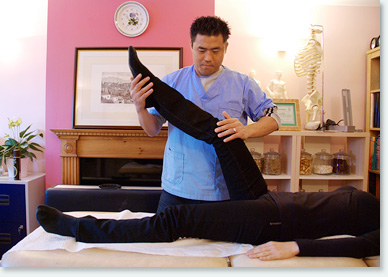|
TRADITIONAL CHINESE MEDICINE
TCM considers the body as a whole, where all parts of the body are connected in different ways, known as channels and meridians.
The balance of these connections and the harmony of the mind and the body, are the sign of a healthy condition.
TCM practitioner would conduct an extensive consultation about the person's discomfort, vitality, and lifestyle. Next step would be
the examination of the patient and gather information about mental, emotional and spiritual conditions.
Consultation: It consists on listening to patient's discomfort and conducting an extensive interview. The practitioner would ask
questions related with body condition (like temperature, perspiration, appetite, thirst, sleeping, energy, urine, stools etc),
past medical history ( as possible origin of the current problem), emotional issues (depression, mood swing, lack of concentration
etc) and patient's lifestyle, which might include environmental conditions (at work place and home), relationship (with partners,
families, friends, and co-workers), diet patterns, sex life, and exercise. These questions provide important information about
physical and mental condition of the patient.
Observation: TCM practitioners are trained in the observation of external signs of any imbalance of the internal body. The tongue
plays an important role in this technique, but information is also gathered from the conditions of the skin, hair, nails, throat, teeth,
gum, mouth, lips, face etc.
Hearing and smelling: Information is gathered from the conditions of the voice and breathing and the presence of cough, frequent
sighing, hiccups and BorBorygmus, as well as from the odours of the body.
Palpation: palpating, feeling and pressing in specific areas of the body are also ways to determine the condition of a patient. Pulse
diagnostic plays a very important role in TCM, giving information on the state of individual organs and the balance of the body as
a whole.
KINESIOLOGY
 |
|
Applied Kinesiology uses manual muscle testing to
identify the imbalance in the body's structural, chemical
or emotional energy.
It's a system which combines muscle monitoring with
the principles of Chinese Medicine to establish the
body's needs, and identify illness in internal organs and
other problems.
|
|

